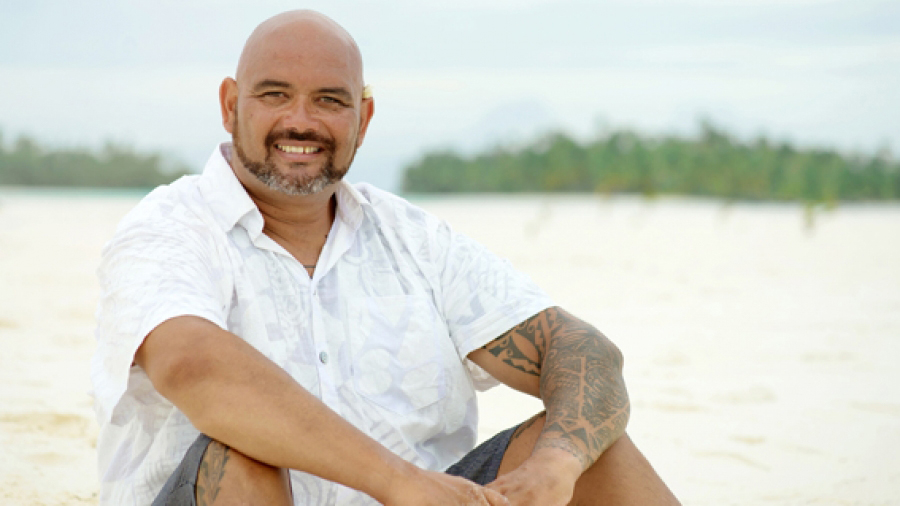My reo lives in my heart
Saturday 26 March 2022 | Written by Thomas Tarurongo Wynne | Published in On the Street, Opinion

Columnist Thomas Tarurongo Wynne. Photo: CI NEWS/16040843
I am fortunate, because for as long as I can remember Maori was spoken in our home, just never to me, although at times about me, especially when I had misbehaved, writes Thomas Tarurongo Wynne.
Sometimes for those of us who are not fluent in speaking Maori, the task ahead of us can feel insurmountable. A seemingly impossible task, when we are confronted with deficit views of ourselves and our lived experiences, or when we try, we at times are ridiculed and scolded for the mistakes we make along the way. Sometimes the greatest resistance to the more than 80 per cent of us that are hungry for our reo is our own people, who suffer us not, nor give us the space to make mistakes, and pick ourselves up again with a correction made instead with love, or at the very least empathy for our journey ahead.
Our desire to speak, to understand and learn for the most of us remains, sadly some will be forever discouraged and never open their hearts or mouths to speak or learn Maori again. And with that, our language dies in the heart of every one of our people that are discouraged by a lack of love.
Language does not live in someone’s mouth, or on the tongue, instead it lives first in our hearts, a palace where the sacred lives, our dreams, loves, our hopes and aspirations that are simply articulated in our mouths when we breathe in and then breathe out again and speak words.
I am fortunate, because for as long as I can remember Maori was spoken in our home, just never to me, although at times about me, especially when I had misbehaved. I am fortunate that my mother spoke Maori around us and the words are familiar to me and the sounds, and now enough sits in my heart so I can map a conversation and for the most part understand what is being said, though not always especially when it is spoken too fast.
For those of us that did not grow up speaking Maori, that was not our choice, and neither was it a choice we would have made had we had one. But here we are, so many of us as adults trying to invoke that deep sense of connection that language does bring, and that deeper sense of connection and belonging. Although we should never then assume that because someone cannot speak Maori that they then cannot think or feel as a Cook Islands Maori because our identity is not singularly qualified in a word or words. Rather it is based on our connection and akapapanga, and something not even death can separate us from.
I am a Cook Islands Maori, not because of what words sit on my tongue as I breathe in and out, I am a Cook Islands Maori because I am connected to that sacred akapapanga tree that we are all connected to. How I express that in language, which is just one of many ways I can express my identity, is something I and many others are challenged to grow. All I ask sometimes is that our people would show more compassion, more patience, more aroa, because without that we will not be able to climb aboard the Vaka of language and join you all in that journey. A Vaka that with the passing of each generation, has less and less people on board, so we all have a vested interest in lowering down the taura so as many of us as possible can climb on board that Vaka with you. That is my heartfelt plea to those who speak Maori and can teach it – please, be patient with us as we climb and do not cut the rope from us or push us down, so that we are cast adrift in the Moana of dreams not realised. Instead we want to climb aboard the Vaka of hope and possibilities.
I wanted to dedicate this week’s column to us all, in the Cook Islands and here in Aotearoa, who are on that journey of learning no matter where on that journey we may be, be encouraged you are not alone. And to wonderful creative and courageous Cook Islanders like Chelsea Munroe-Cuthers, who just left the Cook Islands after filming here documentary called “Lost in translation” talking about her own journey and that of her grandmother and of her parents coming to Aotearoa. The journey of so many of us born in New Zealand, and our deep longing back to a way of life, language and culture that defines us even if we are still learning what some of that fully means. Please help us on the way, that is my plea, because together we can build a future where the challenges facing our language will diminish and not find our language diminish in its place. Ko tei maata ra i taua toru nei, ko te aroa ia.














































